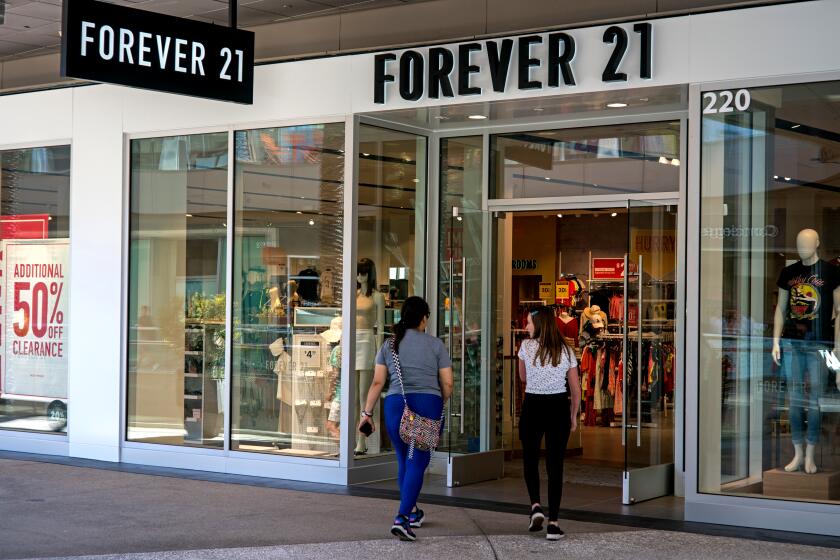Banks simplifying checking account disclosures
- Share via
Bowing to pressure from consumers and Congress, major banks are simplifying the information they provide to customers about their most basic product — the checking account.
Bank of America Corp. said Wednesday that it was adopting plain-language disclosures that fit on a single sheet of paper, as suggested by the Pew Charitable Trusts, a Philadelphia nonprofit that has been outspoken about consumer frustration with lengthy legal terms and conditions.
The changes were spurred by complaints that banks — which caused the financial crisis and were bailed out by taxpayers — had embedded hidden fees and penalties in dozens of fine-print pages describing supposedly free checking accounts. JPMorgan Chase & Co. and Citigroup Inc. had previously adopted revisions.
“Our customers want clear and easily accessible information about their accounts so they can make the choices that are right for them,” BofA consumer products executive Susan Faulkner said in a statement issued jointly with Pew.
The revamped forms include the basic cost of accounts, information on how to avoid charges by using other services or by maintaining minimum balances and notice of fees for ATMs, overdrafts and account closings.
The BofA and Citi disclosures run two pages, so they fit on the front and back of a single sheet. Chase’s Pew-approved form for its basic checking account takes up three pages.
Wells Fargo & Co., which has discussed its disclosures with Pew but has not received the group’s stamp of approval, created a three-page simplified checking account information form that it rolled out in May as a Web-only version. That form isn’t available yet in Wells branches.
Pew’s Safe Checking in the Electronic Age Project sought to have the disclosures fit on a single page. Project director Susan Weinstock said three focus groups told the organization that more information was better, so the account information, even simplified, wound up taking more space.
“They all said they wanted disclosures about all the fees for the checking accounts,” Weinstock said Wednesday.
The voluntary simplifications allow banks to avoid having regulators order them to clarify their disclosures.
Emboldened by BofA’s failed attempt to impose a $5 monthly fee for debit cards, Sen. Richard J. Durbin (D-Ill.) and Sen. Jack Reed (D-R.I.) asked regulators in November to require banks to provide a standardized one-page form enabling consumers to compare fees easily at various institutions.
“As we’ve seen over the last few months, consumers are demanding they be treated fairly,” Durbin said Wednesday. “It’s time for banks and credit unions across the country to join the growing number of financial institutions who’ve decided to put their customers first.”
Pew’s suggested form resulted from a study of 250 types of checking accounts last year. The median length of the full disclosures at the 12 largest banks was 69 pages, meaning half the forms were longer and half were shorter. It also meant that few customers would actually read them, Weinstock said.
A growing list of banks and credit unions, including TD Bank, Capital One Financial Corp. and Fifth Third Bancorp, have agreed to provide information to customers incorporating Pew’s suggestions, though the details vary.
Weinstock said she hoped the Consumer Financial Protection Bureau would create a standardized disclosure form for checking accounts.
More to Read
Inside the business of entertainment
The Wide Shot brings you news, analysis and insights on everything from streaming wars to production — and what it all means for the future.
You may occasionally receive promotional content from the Los Angeles Times.










